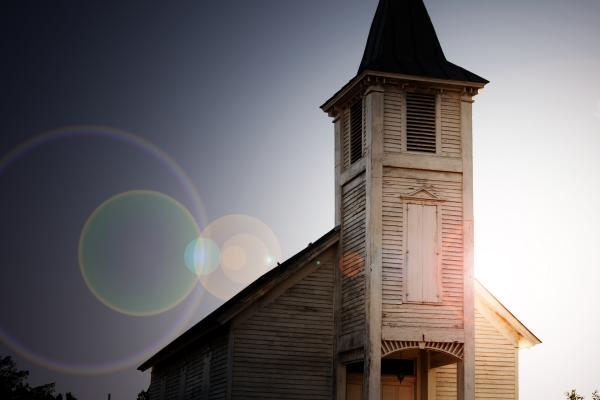On my way home one day this past winter, I saw a woman standing at an intersection, holding a cardboard sign saying she had nothing to eat. Her face was red from the chilling wind. She looked forlorn.
I stopped for the red light and grabbed my wallet to get a few dollars for her. Oops, all I had was a $20 bill. That’s more than I’d intended to give her.
She looked forlorn. I couldn’t just drive past.
I lowered my window and handed her the bill. Her eyes brightened. She grabbed my hand tightly with both of hers — she wore knit gloves that left her cold fingers unprotected. She squeezed hard.
“Thank you,” she said, pumping my hand. “God bless you! Thank you! Thank you!”
As I raised the window, I watched her step back, go to one knee, clasp her hands, look up to the sky and mouth the words, “Thank you! Thank you! Thank you!” Then she made the sign of the cross.
At that moment, it struck me: I’d become the answer to her prayer.
In just the latest evidence that a certain subset of conservative evangelical Christians really has no interest in occupying the real world with the rest of us, the trailer for a new movie called A Matter of Faith has hit the Internet.
The film follows the travails of a Christian father, who — horrified by the fact that his daughter’s college teaches the theory of evolution as a fact (gasp!) — challenges the villainous biology professor to a public debate that will no doubt settle the matter once and for all.
If this premise sounds strangely familiar, it could be that you’re remembering God’s Not Dead, a film released in March, in which a Christian student who — horrified by the fact that his philosophy professor is a committed atheist — challenges the dastardly nonbeliever to a debate on the existence of God that, no doubt, settled the matter once and for all.
(I’m told that the new movie was called Christians vs. the Straw Man II: This Time It’s Personal throughout production, before filmmakers decided to rename it A Matter of Faith.)
The similarities between the two pictures don’t stop there.
When evangelicals and Catholics set aside centuries of mutual suspicion 20 years ago, the idea was fairly simple: Even if we can’t always work together, at least let’s not work against each other.
Now, two decades after the launch of the group Evangelicals and Catholics Together , relations between the two groups appear stronger than ever, forged by shared battles over abortion, same-sex marriage, religious freedom, and immigration.
A new pope is finding crossover appeal among evangelicals who share Pope Francis’ emphasis on evangelism and his distaste for the fancier trappings and authoritarianism of the papacy.
To the dying church,
The ongoing decline of American Christianity is well documented. A quick Google search of “mainline decline” provides statistics, commentary, and variously tried and discarded solutions related to the struggles of liberal protestantism in the United States. More recently, these trends are showing up in conservative Christian circles as well. The attention of the media, religious scholars, and cultural warriors has been captured by the rise of the “nones,” the “spiritual but not religious,” humanists, and evangelistic atheists.
It is clear who’s ascending and who’s falling. Organized religion is doomed. You, dying church, are in trouble.
I have seen your sickness up close. The congregation where I was baptized — once full on Sunday mornings — now barely hangs on. The church where I preached in college has long since closed its doors. My pastor friends spend their days worrying about shrinking worship attendance and a lack of financial resources for carrying out their ministry. Denominations pause from fighting and splitting just long enough to make budget cuts and lay off staff.
What can be done? What should be done? Is this a new reality that we simply must accept?
Every mother and father know the struggles, frustrations, unrealistic expectations, horrific fears, and exhaustive drama associated with raising children, but let me just say this: Christianity adds an entirely new dimension to the chaos that is parenting.
Besides an assortment of play dates, sports activities, school classes, music events, and other social obligations, Christianity requires the additional burden of attending an endless array of church activities.
Mission trips, youth groups, service projects, summer camps, volunteer activities, Sunday school classes, Bible studies, evangelism outings, and church services require tons of time — it’s a huge commitment.
Christian culture goes out of its way to accommodate parents and their children, and while this is a good thing, it also adds social expectations that can often feel burdensome and frenetic — leading to burnout.
A new report on the “Shifting Religious Identity of Latinos” reads very much like a biography of Fernando Alcantar.
But once he moved to California after high school, his faith journey diverged — and derailed. Today, Alcantar, 36 calls himself a humanist.
The Pew survey report released Wednesday is subtitled: “Nearly One in Four Latinos are former Catholics.” And Alcantar is one of them.


Our fearless driver, Jacque, is a security guard. He speaks with an eloquent French accent. His words are few, but every now and then he’ll tell us a pertinent and profound fact as we drive. The tone of his voice perfectly narrates our scenic drive — whether we’re driving along the backroads of Rwanda’s hills, cruising peacefully through Kigali, or chasing elephants.
His story comes out in pieces:
When the genocide hit in 1994, Jacque was in high school studying in Kibeho, a beautiful village known for apparitions of the virgin Mary. He fled for another town to find safety with his family. The first time he’s been back to Kibeho was 20 years later, with us.
His son is now in high school at a boarding school. On our way from Kibeho, we stopped to say hello so that Jacque could give him money. Jacque was beaming with pride when he introduced us to his son.
Jacque also has a 3-year-old daughter — she’s the cutest thing.
When we visited Kigali’s Genocide memorial, Jacque stayed in the car. We found out later that the bodies of his wife’s parents are buried in the mass graves there.
His wife barely escaped death herself. When she was just 9 years old, her village was raided by the interahamwe who savagely hacked apart bodies, her parents’ included. As the genociders were merely Hutu youth who knew little about taking one’s life, victims were left beaten, mutilated, bleeding profusely — left to die. Thinking they had finished the job, the interahamwe threw all of the “dead” Tutsi bodies into a pile and moved on to the next village. She was one of the bodies — broken, but not dead. She was just a little girl — her body thrown into darkness among hundreds of other broken, bloody, and hacked-apart bodies.
When the interahamwe left, her classmate, neighbor, and friend, a Hutu, went back. She couldn’t bear the thought of losing any more of her friends to the blood-stained hands of her tribe members. She went back to dig through the piles of bodies — desperately searching for any semblance of life from the friends she held most dear. There, she found her dear friend, still grasping for breath, clinging to life, refusing to be consumed. In that moment, I can only imagine the overwhelming relief as the pendulum swung from sorrow to joy as they looked into each other’s eyes and identified with each other — literally finding life in death and hope in the midst of pain. Jacque’s wife survived only by the hopeful expectancy of a friend who intentionally went back into the destruction to pull out the life within.
Confession: I cannot say the books of the Bible in order. Sometimes I still feel embarrassed when I have to flip around a little bit to find a certain book or, even worse, use the table of contents. It seems like I was supposed to learn this Christianity-defining skill at some point in my upbringing (preferably to the tune of a cutesy song or chant), but I never did. I am 28 years old, a teacher, and have a master’s degree, yet beyond the first few books after Genesis and “Great Electric Power Company” (Galatians-Ephesians-Philippians-Colossians), I get mixed up.
The realization that the order of the books does not particularly matter, then, comes with a bit of relief and freedom. In the Protestant canon, the Old Testament books are arranged by category (law, history, poetry, major prophets, minor prophets). The New Testament books are similarly arranged by type (Gospels, history, Paul’s letters, general letters, and prophecy). The Great Electric Power Company and friends — I mean, Paul’s letters — are actually arranged by length!
Certainly, there are reasons for knowing the order of the books in the Old and New Testament. It is simply more efficient to know exactly where to find a book. Knowing the names of all of the books does give you a general familiarity with our sacred text. These reasons, however, are functional, not crucial to one’s faith or salvation.
Long before head coach Doc Rivers found himself defending his Los Angeles Clippers players who were the unwelcome participants in team owner Donald Sterling’s racist comments all week, he was concerned about another sensitive subject: religion.
It was late 1999, the start of Rivers’ first season as coach of the Orlando Magic, and he saw a situation in the locker room that he felt needed to be addressed.
As his players took part in the pregame prayer that was part of their routine, Rivers noticed something he didn’t like.
“I looked up in one of the prayers, and Tariq [Abdul-Wahad] had his arms folded, and you could see that he was really uncomfortable with it,” Rivers said. “So the next game, we were standing up in a circle, and I said, ‘Hey guys, we’re no longer praying.’”
The Vatican has effectively addressed the “worldwide scourge” of clerical sexual abuse over the past decade and promoted the reporting of allegations to both church and legal authorities, a United Nations panel heard on Tuesday.
Tomasi faced intense questioning from members of the U.N. committee investigating whether the church upholds the U.N. convention against torture beyond the walls of the world’s smallest country, the Vatican City state.








